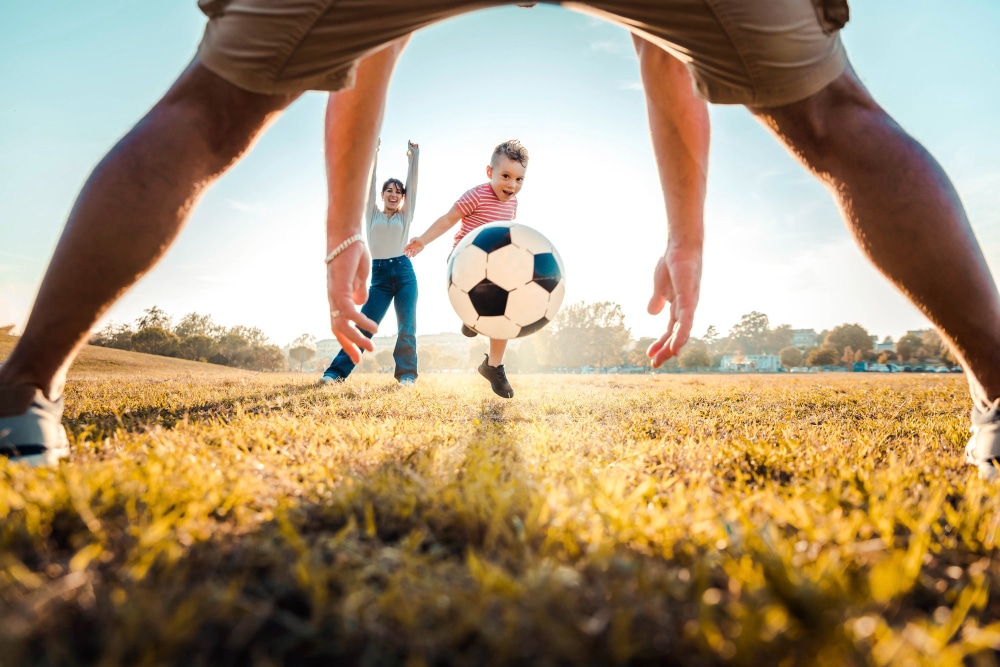Have you ever noticed how much happier kids seem after a day playing outside? It’s not just your imagination. Outdoor education is a powerful tool for helping children grow and thrive.

In today’s fast-paced, technology-driven world, it’s more important than ever to ensure children have opportunities to connect with nature. Outdoor education offers a wealth of benefits, from physical health improvements to enhanced social skills and cognitive development.
This article will explore how outdoor education plays a vital role in child development and why it’s essential for their overall growth.
The Benefits of Outdoor Education
Physical Health
Kids need to move, and what better way than through outdoor activities? Climbing, running, and playing outside help improve their fitness and motor skills. Physical activity is crucial for healthy growth and development. Outdoor play offers a natural way to boost children’s physical fitness, enhancing their strength, endurance, and coordination. Activities like hiking, biking, and climbing not only keep kids active but also help them develop important motor skills.
Mental Health
Studies show that spending time outdoors reduces stress and boosts mood. Children today face a lot of pressure, from schoolwork to social dynamics, and being in nature provides a much-needed respite. Outdoor environments have been shown to reduce symptoms of anxiety and depression in children. Additionally, outdoor play encourages mindfulness, helping children stay present and enjoy the moment.
Cognitive Skills
When children explore nature, they engage in activities that challenge their thinking and reasoning abilities. Building a fort, following a trail, or observing wildlife all require kids to think critically and make decisions. These experiences promote cognitive development and foster a love for learning. Nature provides an ever-changing environment that stimulates curiosity and creativity, encouraging children to ask questions and seek answers.
For those passionate about guiding these experiences, programs like the Bachelor in Outdoor Education prepare individuals to effectively teach and lead in outdoor environments. This degree equips graduates with the necessary knowledge and skills to create safe, engaging, and educational outdoor experiences for children. By becoming outdoor educators, they can inspire the next generation to appreciate and care for the natural world.
Developing Social Skills Through Outdoor Education
Teamwork and Cooperation
Outdoor activities often require working together. This helps kids learn to communicate and collaborate. Whether it’s building a shelter, playing team sports, or going on a group hike, outdoor education emphasizes the importance of teamwork. Children learn to listen to others, share ideas, and work towards common goals. These experiences help them develop essential social skills that are crucial for success in school and life.
Leadership and Communication
Leadership skills are naturally developed in outdoor settings. Kids learn to take charge and lead peers. Outdoor education programs often include activities like ropes courses and adventure camps that require children to step up and lead. These experiences teach them how to communicate effectively, make decisions, and motivate others. Leadership skills gained through outdoor education are invaluable and can benefit children throughout their lives.
Environmental Awareness and Responsibility
Teaching About Nature
Understanding nature is a key part of outdoor education. Kids learn about plants, animals, and ecosystems. Through hands-on experiences, children gain a deeper appreciation for the natural world. Outdoor education provides opportunities for children to explore different habitats, observe wildlife, and understand ecological principles.
Conservation
Outdoor education instills a sense of responsibility for the environment. Children who spend time in nature are more likely to develop a commitment to conservation. They learn about the impact of human activities on the environment and the importance of sustainable practices. Activities like recycling projects, tree planting, and community clean-ups teach children how they can make a positive difference. By fostering a sense of stewardship, outdoor education helps children become advocates for the environment.
Stewardship
Kids become environmental stewards, understanding the importance of protecting our planet. Outdoor education programs often include lessons on conservation and sustainability. Children learn how to care for natural resources and take action to protect the environment. These experiences empower them to become responsible citizens who are committed to preserving the planet for future generations.
Enhancing Academic Performance
Complementing Classroom Learning
Outdoor education isn’t just playtime; it enhances academic learning. Nature can make subjects like biology and geography more engaging. When children study science in the classroom, outdoor education provides practical, hands-on experiences that reinforce their learning. For example, studying plant life cycles in a garden or observing weather patterns in real time can make scientific concepts more tangible and interesting.
Subjects Benefiting from Outdoor Learning
Subjects like science and geography come alive when taught outside. Outdoor education provides unique opportunities for experiential learning. Children can explore geological formations, study water ecosystems, or observe animal behavior in their natural habitats. These experiences deepen their understanding of academic subjects and foster a love for lifelong learning.
Building Resilience and Independence
Facing Challenges
Outdoor education teaches kids to face and overcome challenges. Nature presents a variety of obstacles that require problem-solving and resilience. Activities like rock climbing or navigating a trail challenge children to push their limits and develop perseverance. These experiences help them build confidence and learn that they can overcome difficulties with determination and effort.
Encouraging Independence
Outdoor adventures build independence. Kids learn to rely on themselves. Activities like solo hikes or camping trips encourage children to take responsibility for their actions and make decisions independently. They learn self-reliance and gain a sense of accomplishment from navigating challenges on their own. These experiences foster a strong sense of independence and self-confidence.
Conclusion
Outdoor education offers countless benefits for child development. From physical and mental health to social skills and academic performance, the impact is profound. Children who engage in outdoor learning are healthier, happier, and more well-rounded. They develop a deep appreciation for nature and a sense of responsibility for the environment.
As parents and educators, it’s crucial to provide children with opportunities to explore and learn in outdoor settings. By doing so, we help them grow into resilient, independent, and environmentally conscious individuals.

